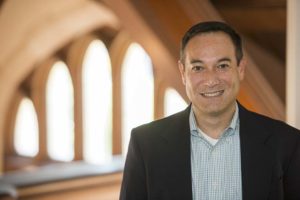 John Inazu, the Sally D. Danforth Distinguished Professor of Law and Religion
John Inazu, the Sally D. Danforth Distinguished Professor of Law and Religion
The right of assembly allows people to form and gather in groups of their choosing, and to publicly express their values and beliefs even when they conflict with the views of the majority. In the United States, this right finds an uneven reception: Groups of citizens regularly exercise it, but too often American political and cultural leaders ignore it. In recent years, state and local law officials illegally shut down protests in Ferguson, Missouri; the American Civil Liberties Union failed to support a protester outside a Massachusetts abortion clinic; and the New York Police Department sent undercover agents to infiltrate Muslim student groups.
Public universities have deregistered Christian groups that wanted their members to share their beliefs, Republicans have threatened to strip Planned Parenthood of its tax-exempt status, and Democrats have pledged to do the same to conservative religious organizations. And President Donald Trump has attempted to limit political protests against him. Americans across the political spectrum confront restrictions and limitations on their right to assembly.
Read the full piece in The Atlantic.